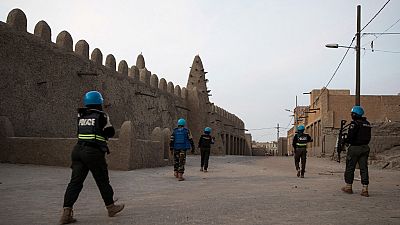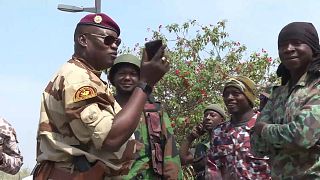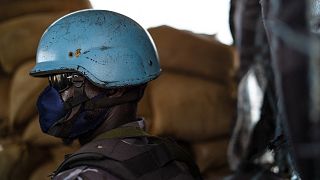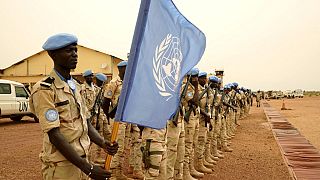USA
UN peacekeeping mission in Mali is 'not viable' without increasing the number of peacekeepers, according to a draft UN report obtained by AFP, which mentions a possible withdrawal of troops if key conditions are not met.
MINUSMA was created in 2013 to help stabilize a state threatened with collapse under jihadist pressure, protect civilians, contribute to the peace effort, and defend human rights. .. But the security situation has continued to worsen.
"MINUSMA is a peacekeeping operation where there is no peace to keep", summarizes the UN Secretary-General Antonio Guterres in this document given to the members of the Security Council and which must be published shortly.
With the extension of its mandate in 2019 in the center of the country particularly affected by the violence, the mission, now deprived of the support of foreign operations, in particular from France which withdrew last August, "did its best ", but "was pushed beyond its limits," he notes.
A situation has placed MINUSMA in a "delicate situation", "unable to meet the expectations of the Malian population and certain regional actors" and thus subject to "persistent criticism".
The report requested by the Security Council in June - when the mission was renewed for one year - thus considers that "the current situation is not viable" and proposes three series of options to remedy it.
The first would be to give it the means to fully carry out its mandate by increasing its military and police personnel by 3,680 people, or 2,000 in a more modest version.
In mid-December, the mission had 12,388 soldiers (against 13,289 authorized by the mandate) and 1,598 police officers (for 1,920 authorized).
But this first option requires "all parameters" to be met. Among these conditions, the Secretary-General cites progress in the political transition which provides, after two military coups, for the return of civilians to power in March 2024, as well as the freedom of movement of peacekeepers while the UN denounces obstacles imposed by the Malian authorities.
Boosting numbers also raises the issue of finding troops, as several contributing countries (with a total of 2,250 peacekeepers) have announced their withdrawal from MINUSMA, which has paid a heavy price with 165 dead since 2013.
Opposite option, "if the key parameters for the mission to be able to operate with its current mandate are not met", the secretary general evokes the "withdrawal of units in uniform" and the transformation into a "special political mission", with a presence only in Bamako.
Between the two extremes, the report proposes maintaining the number of blue helmets, but modifying the mandate, with the closure of certain camps or a reduction in the presence in the centre of the country.
If Antonio Guterres does not recommend one or the other of the three options submitted to the Security Council, he underlines that "the objective of the UN presence in Mali remains as relevant as ten years ago". Even more, because of "the immense needs for the protection of countless civilians, the requirements of the ongoing political transition and the central place of Mali's trajectory in stabilizing the Sahel".
"No effort should be spared to prevent the renewal of a cycle of political instability and the further deterioration of the security, humanitarian and human rights situation", pleads the Secretary-General.
He also notes that most of the Member States and other partners consulted have insisted on the fact that a "withdrawal would be detrimental to Mali and regional security", underlining the "existential risk" posed by terrorist groups beyond West Africa.
But some are worried about the human and financial cost of the mission with an annual budget of 1.2 billion dollars.
"Mali is one of the most challenging operating environments for peacekeeping," the report summarizes, highlighting the vast area of operations, the state of infrastructure and the "pervasive" threats from various groups operating in the region. region.













Go to video
In Kenya, 90% of packaged food needs health warning label under new rules
00:52
UN warns global progress on gender equality is at risk
Go to video
World leaders confront gap between rich and poor at Financing for Development meeting
00:52
Nigeria’s Peter Obi to contest 2027 election, opposition coalition in jeopardy
Go to video
Cameroon’s Tourism Minister joins presidential race as Biya’s silence fuels uncertainty
01:12
UN chief warns of high number of armed conflicts